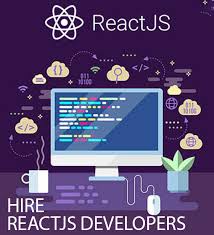What Are AI-Generated Study Guides?
AI-generated study guides are digital summaries and condensed notes created with the help of artificial intelligence tools. Instead of manually reading through long chapters or lecture materials, students can upload or paste content into an AI system, which then extracts key points, organizes information, and highlights essential concepts. These guides turn overwhelming study materials into easy-to-understand notes, complete with definitions, examples, and structured sections. Designed to save time and simplify learning, AI-generated study guides help students focus on what matters most during exam preparation.
Why Students Use AI to Create Smart Notes
Students use AI to create smart notes because it saves time, reduces study stress, and helps them understand complex topics more easily. Instead of spending hours reading, highlighting, and rewriting information, AI tools quickly generate organized summaries that highlight the most important points. These notes are clean, structured, and tailored to the student’s learning needs, making exam revision faster and more efficient. With AI, learners can focus more on understanding concepts rather than struggling to organize large amounts of information.
Best AI Tools for Making Study Guides
Here are some of the top AI tools that are especially useful for creating smart, exam‑ready study guides:
-
ChatGPT — A powerful LLM that can help you summarize textbook chapters, explain complex concepts in simpler terms, generate practice questions, and even outline your study guide. Because of its flexibility, it’s a go-to tool for a wide range of academic tasks.
-
Google NotebookLM — Designed for students, this AI tool (based on Google Gemini) lets you upload PDFs, slides, or lecture notes and turns them into structured summaries. It also offers collaborative note spaces and “audio overviews” that feel like podcasts.
-
Notion AI — Perfect for organizing your study materials. You can create study dashboards, convert rough notes into clean summaries, and even generate to-do lists and flashcards directly within Notion.
-
Quizlet AI — Ideal for memorization. Quizlet’s AI features transform your notes into flashcards, quizzes, and study games. It’s great for active recall and spaced repetition during revision.
-
Perplexity AI — Useful for research-heavy assignment writers online. It provides concise answers with sources, making it easier to fact-check, gather evidence, or pull together an academic study guide.
-
Grammarly — While primarily a writing tool, Grammarly’s AI helps refine your summaries, check for clarity, and improve your writing style. It ensures the study guide you generate is polished and professional.
-
NotebookLM (Gemini-powered) — More than just text summarization, this tool can generate deep notes, ask and answer questions based on uploaded content, and help you build a more interactive study guide.
-
STORM — A research-focused AI tool that generates well-structured, cited content. It’s powerful for creating detailed academic outlines and deep-dive study guides.
-
Lumio AI — A multi-model AI workspace that lets you switch between different LLMs (like ChatGPT, Gemini, Claude) for summarization, research, and note-taking, depending on the strength of each model for the task.
-
Semantic Scholar — While not a typical “note-taking” tool, Semantic Scholar uses AI to summarize and highlight research papers. This is extremely useful for students working on high-level academic study guides or literature reviews.
How AI Helps With Complex Subjects
AI tools make complex subjects easier to understand by breaking difficult concepts into simple, digestible explanations. Whether it’s advanced mathematics, scientific theories, historical events, or technical topics, AI can provide step-by-step breakdowns, real-world examples, comparisons, and visual explanations that clarify challenging material. Many AI platforms can also analyze equations, interpret diagrams, and simplify dense academic language, helping students grasp ideas that might otherwise feel overwhelming. By offering personalized explanations and adaptive learning support, AI becomes an effective companion for mastering even the toughest subjects.
How to Create AI-Generated Notes (Step-by-Step)
Creating AI-generated notes is a simple and efficient process that can save hours of manual work. First, gather your study materials—these can be textbook chapters, lecture slides, PDFs, or even typed class notes. Next, upload or paste the content into your chosen AI tool, such as ChatGPT, Notion AI, or Google Gemini. Then, prompt the AI to create a structured study guide by asking it to summarize key points, highlight important definitions, and organize content into headings and bullet points. You can also request examples, diagrams, or practice questions to make your notes more comprehensive. Finally, review the AI-generated notes, add your own insights or highlights, and organize them in a study-friendly format, such as Notion, OneNote, or Google Drive, for easy access during exam preparation.
Tips for Making AI Notes More Effective
To get the most out of AI-generated notes, students should personalize and refine the content rather than relying on it as-is. Adding highlights, comments, and extra examples helps reinforce learning and improves memory retention. It’s also important to fact-check key details—especially in technical or scientific subjects—to ensure accuracy. Asking follow-up questions and requesting deeper explanations from the AI can further strengthen understanding. Finally, combining AI-generated notes with active study methods like flashcards, practice tests, and spaced repetition creates a more complete and effective exam preparation strategy.
Are AI-Generated Study Guides Allowed?
In most schools and universities, AI-generated study guides are allowed as long as they are used ethically and responsibly. Educators generally view AI tools as learning aids—similar to online tutorials, textbooks, or digital notes. However, students must avoid submitting AI-generated text as their own work for graded assignments or exams, as this can violate academic integrity rules. AI should be used to support understanding, not replace the learning process. Always check your institution’s guidelines, cite sources when necessary, and use AI notes as a starting point for deeper study and personal reflection.
Final Thoughts on Using AI for Exam Preparation
AI has become a powerful study companion, helping students turn overwhelming study materials into clear, organized, and easy-to-review notes. When used responsibly, AI can enhance understanding, boost confidence, and save valuable time during exam season. While it shouldn’t replace active studying or critical thinking, it can streamline the learning process and make revision far more efficient. By combining AI-generated study guides with your own insights and practice, you can create a balanced, effective exam preparation strategy that leads to stronger performance and reduced stress.


